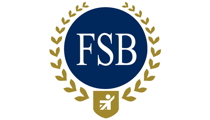This website uses cookies so that we can provide you with the best user experience possible. Cookie information is stored in your browser and performs functions such as recognising you when you return to our website and helping our team to understand which sections of the website you find most interesting and useful.
Business News Labels & Publishers
Federation Of Small Businesses says concerns remain with music industry’s public performance licensing
By Chris Cooke | Published on Monday 17 November 2014
The Federation Of Small Businesses reckons that the music industry’s performing right collecting societies still have some way to go in improving the way they work with small to middle sized enterprises, despite acknowledging some improvements in recent years.
Any company which plays music on its premises requires a public performance licence, of course, though the industry provides blanket licences to such users via its collecting societies. PPL licenses the copyright in the sound recordings (owned or repped by labels) while PRS For Music handles the separate rights in the songs (owned and repped by publishers), and most businesses need licences from both.
The UK government has, in recent years, put some pressure on collecting societies from across the content industries to adopt and live up to ‘minimum standards’ of service to licensees. And on the back of the 2011 Hargreaves Review of the UK copyright system, new laws backing said minimum standards went through earlier this year, though both PPL and PRS had already updated their own codes of conduct to bring them in line with post-Hargreaves standards back in 2012.
But citing its own research, the FSB said last week that it had found nearly a quarter of its members with a collecting society licence had made a complaint of some sort about the collective licensing system. The Federation added: “The findings also show the lack of progress towards achieving greater transparency and simplicity of charges over the past twelve months. Without such progress, trust amongst small businesses in the current system will be undermined”.
Of course, the collecting societies play a role akin to the tax man, so are always going to have critics amongst licensees who resent paying anything to play music in public, though most people within the industry agree music licensing remains too complex and might agree there is still someway to go in better explaining and structuring how it all works.
But the FSB did concede that the music communities’ societies had made “improvements to the accuracy of information used” and welcomed efforts by PPL and PRS to collaborate on some licences, meaning some licensees could now cover all music rights through a one-stop shop licence.
Nevertheless, FSB National Chairman John Allan told reporters last week: “Although collecting societies have a strong code of conduct in place, we are not convinced they are making enough progress in meeting their own standards. This research should be seen as a warning sign that without faster change, small business will start seeking stronger regulation of the industry”.






